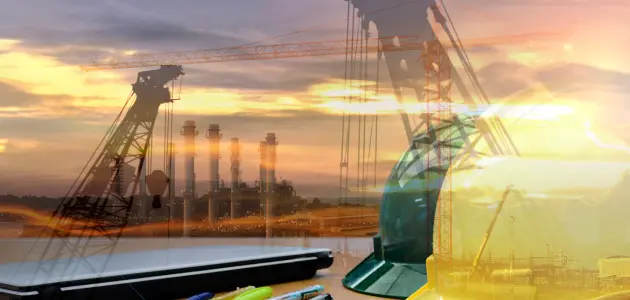
In a world increasingly focused on sustainability, the construction industry is under immense pressure to innovate and reduce its carbon footprint. At the Construction Technology Confex, Kamal Farah, Director of Desert Board at ECC Group, took center stage to introduce a groundbreaking product that promises to reshape the future of building materials—Desert Board.
Introducing Desert Board!
Desert Board isn’t just another construction material; it’s a bold statement in the journey towards a more sustainable built environment. Manufactured in the heart of the UAE’s desert, this innovative product is made from upcycled palm fronds—a material abundant in the region but often discarded as waste. Desert Board’s vision is clear: to lead the decarbonization of the construction industry and transform the way we think about building materials.
Kamal Farah highlighted that the construction industry is responsible for a staggering 25% to 40% of global CO2 emissions, with a significant portion coming from the materials used. Desert Board addresses this challenge head-on by converting palm waste into high-strength, bio-based Palm Strand Boards (PSB), a product that requires no trees to be felled and can be recycled at the end of its lifecycle. This aligns perfectly with global sustainability goals, such as those outlined in the Paris Climate Agreement.
The Desert Board Journey!
During his presentation, Kamal Farah detailed the extensive process behind creating Desert Board. What began in 1997 has now culminated in the world’s first and only wooden board made from date palm fronds. Manufactured in a state-of-the-art facility in KEZAD, Abu Dhabi, these boards boast impressive strength—comparable to OSB-3, a standard used in prefabricated housing in North America and Europe.
The manufacturing process involves collecting pruned palm fronds from various sources, processing them in a massive 50,000 square meter factory, and using advanced technology to create high-quality PSB for diverse applications. Whether it’s for interior construction, prefabricated houses, or even fire-rated doors, Desert Board offers a versatile, eco-friendly solution that’s as durable as it is sustainable.
Leading the Circular Economy in Construction
One of the standout features of Desert Board is its contribution to the circular economy. By using a natural, renewable resource—date palm fronds—the company turns what was once waste into a valuable product. Moreover, the boards are formaldehyde-free, promoting better indoor air quality and aligning with health-conscious building standards.
But Desert Board’s commitment to sustainability doesn’t stop there. The company has also pioneered a process that allows their boards to be recycled and reused, ensuring that the product’s lifecycle continues to benefit the environment. This was vividly demonstrated at various exhibitions, where boards used in temporary structures were returned, recycled, and transformed into new products.
A Call to Action: Embrace Sustainable Innovation
Kamal Farah’s presentation wasn’t just an introduction to a new product—it was a call to action for the construction industry. By choosing Desert Board’s PSB, builders and developers can actively contribute to decarbonizing the built environment and support the global effort to combat climate change. The product’s unique properties, from its carbon-sequestering capabilities to its strength-to-weight ratio, make it an ideal choice for sustainable construction projects.
As Kamal concluded, Desert Board is more than just a material; it’s a movement towards a healthier, more sustainable future. For those looking to learn more or see the product in action, Kamal warmly invited attendees to visit the Desert Board booth at the Confex.
Desert Board – The Future of Sustainable Construction
In a world where sustainability is no longer optional but essential, Desert Board stands out as a beacon of innovation. By transforming palm waste into a high-strength, recyclable building material, Desert Board is not only reducing the environmental impact of construction but also leading the charge towards a circular economy. Kamal Farah’s presentation at the Construction Technology Confex was a powerful reminder that the future of construction lies in sustainable, nature-based solutions—and Desert Board is paving the way.













